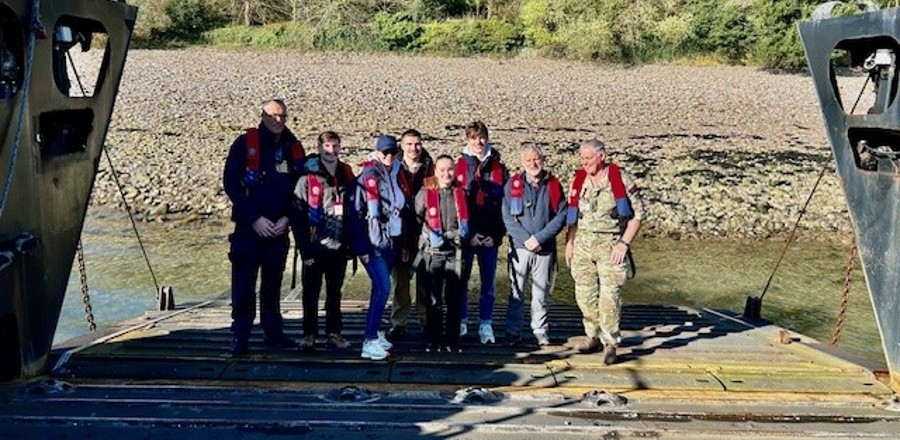Engineering students gain hands-on insight at naval base during visit

A group of mechanical engineering students from Glasgow Caledonian University embarked on a transformative learning experience as they gained a first-hand glimpse of Royal Navy and Royal Marines operations.
The students visited HMNB Devonport, Plymouth, alongside international peers from the Polytechnic University of Catalunya and the University of Applied Science of Osnabrück.
These students are part of the European Project Semester (EPS), engaging in a project provided by the Royal Navy, entitled The Future Mk 11 Landing Craft.
A landing craft is a type of naval vessel designed to transport troops and equipment from ships to shore. These vessels are typically equipped with a shallow draft, allowing them to approach close to shore and unload their cargo directly onto beaches or landing zones.
Over the past 13 weeks, the students have been immersed in the concept design for the Mk11, participating in weekly meetings with the supervisory team to refine their ideas. Their visit to HMNB Devonport, which was organised by 47 Cdo RM, provided a unique opportunity to witness the operations of a landing craft first hand, gaining insights crucial for their project. Moreover, they presented and discussed their concept design with different officers, receiving invaluable feedback to enhance their work further.
Reflecting on their experience, the students expressed gratitude for the eye-opening trip, highlighting the enriching exposure to Royal Navy and Royal Marines operations. They lauded the EPS module for fostering cultural diversity and embracing a practical, project-based approach, enriching their academic journey.
Professor Patricia Munoz-Escalona, the academic supervisor, commended the students for their exemplary presentations and emphasized the significance of the European Project Semester in cultivating global engineering competencies.
She said: “The successful collaboration between Glasgow Caledonian University and the Royal Navy exemplifies the value of real-world projects in higher education, equipping students with the skills and experiences necessary for their future careers. As the students return to their studies, they carry with them a newfound appreciation for interdisciplinary collaboration and a deeper understanding of naval engineering intricacies.”
Cdr Dave Pinder RN and C/Sgt Will Parker RM, the industrial supervisors, expressed delight in collaborating with GCU EPS students on the Landing Craft Design Project.
They said: “Working with future engineers from Glasgow Caledonian University, and their European partner universities, on real-life projects enables the engineering industries to thrive and benefit from young graduates who have experienced working with customers, meeting deadlines and delivering high calibre projects.
“Having the Glasgow Caledonian EPS students visit allowed them to not only see the current Mk10 landing craft but also meet the operators and maintainers and understand the complexities involved with operating landing craft at sea. Given the success of this project, the Royal Navy looks forward to further collaborations on such projects.”
